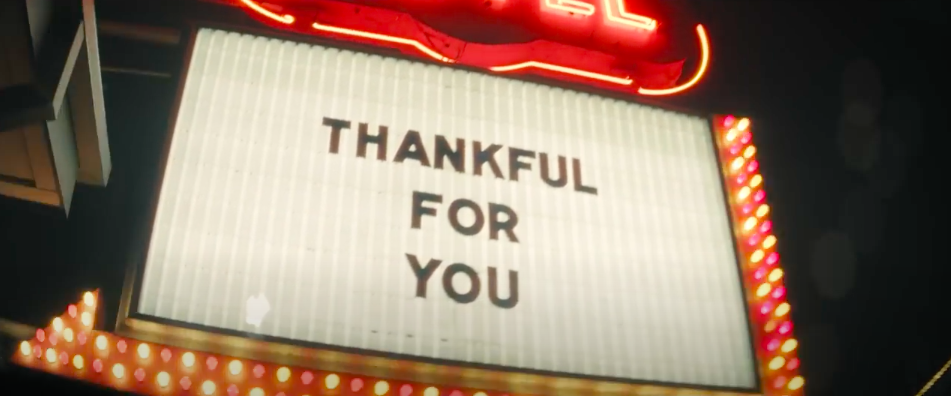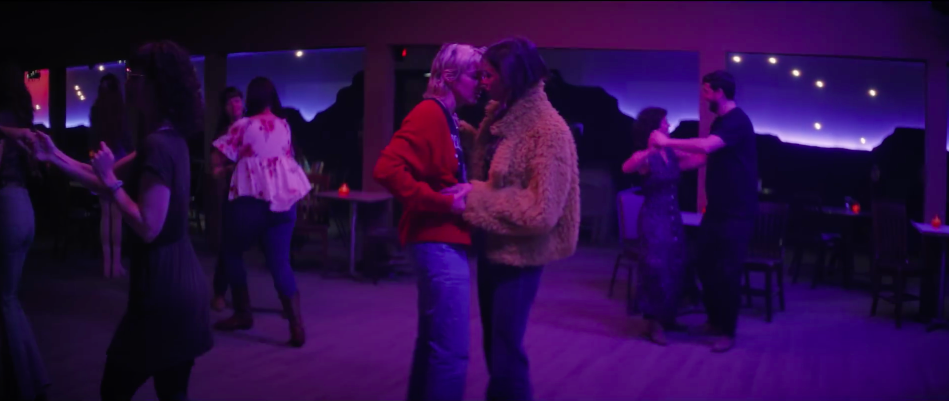“The Art of Forgetting” and the power of remembering, an interview with Caroline Rose
by Serena Zets
“You can make something for people to experience from your feelings and it opens so many doors that are unexpected. That unexpectedness makes me so excited to be alive.”
Caroline Rose
Caroline Rose is no stranger to the universal shittiness of the past few years. Amidst the backdrop of a pandemic that halted the music industry as we know it and left artists scrambling to find an income (and a purpose), Rose also navigated the personal difficulties of a painful breakup and grieving a major loss. A lot of people have tried to compartmentalize and run from the pain of the pandemic,but Rose’s new album The Art of Forgetting, out March 24, is unafraid to explore that pain and the emotional complexities that come along with it. As the striking album cover depicts, Rose instructs us to invite the pain in and sit with it, even when the world bursts into flames.
Rose’s nearly decade-long discography spans many genres and musical traditions. The Art of Forgetting is their first dive into a truly raw and vulnerable confessional style. Their past projects have traversed American folk, Americana, and pop, all influences present in The Art of Forgetting. Rose recounted that the album was born out of the time in 2020 when their last headlining tour abruptly ended, along with “first big kid relationship.” At the same time, their grandmother’s health was failing, long-overdue movements for social justice were gaining large-scale attention and momentum, and we were all navigating global loss on an unfathomable scale. The world, including Rose, was struggling to make sense of itself. Before this time of crisis, Rose had long avoided confessional songwriting because they viewed their art “as a rebellion from how emotional I’ve always been.” By refusing to explore the full depths of their emotions in their music, Rose had unintentionally built up a wall. When the difficulties and pain of 2020 brought them to a crossroads, they finally had time to sit down and address how they felt.
“My vulnerability and how emotional I am is one of the greatest parts of myself,” Rose said and it shines through in the album.
Rose allowed these forceful emotions to guide The Art of Forgetting. “If I wasn’t incredibly moved by the song, I reworked it until I was,” Rose explained. Instead of shying away from their emotions, Rose embraced them. What resulted is fourteen moving tracks, some songs, and some repurposed voicemails from Rose’s grandmother. The record mirrors the emotional experience of the pandemic, taking the listener on a journey from heartbreak and utter devastation to self-love and charting a new path for oneself. The sharp story-telling and emotionally honest lyricism are some of the record’s greatest strengths.
The first song, “Love / Lover / Friend” signals a personal reckoning as Rose sings, “I’m not a rag doll / with which you can always play / I’m not a house key / a key you can always change.” The songs that follow take the listener through the ups and downs of Rose’s past few years. A standout song is “Miami,” which recalls Rose’s heartbreak. “Miami”’s cinematic music video reverses the timeline of a relationship in turmoil so viewers can see all the love, joy, and excitement it first held. It is a beautiful tale of both queer love and heartbreak. The album’s title comes from “Miami”’s lyrics; “this is the hard part / the part they don’t tell you about / there is the art of loving / this is the art of forgetting how / this is gonna break you/ you’re gonna rip your own heart out / there is the art of loving / this is the art of forgetting how / this is the art of forgetting how / you’ve gotta get through this life somehow.”
Later on, “Everywhere I Go I Bring The Rain” is an honest account of how futile and cyclical life can feel when one is depressed. Rose sings “you can fuck it all away / you can lay in bed all day / but you’ll never run away / from your pain.”
Similarly, “Love Song for Myself” is a slightly twisted ode to Rose that confronts and addresses the tumultuous times they’re living through. The lines “If I am a hurricane / coming to destroy everything / then I too am the return of all things beautiful,” speak to Rose’s attempts to find beauty and strength amidst the wreckage. Each track turns this underlying strength and resilience into lyrical masterpieces.
Throughout the original songs, voicemails from Rose’s grandmother are layered over beautiful instrumental tracks. At times, these voicemails act as interludes that further the story along. When Rose is struggling, their grandmother is there to remind them that they’re “better than gold” (“Better Than Gold”.) When Rose fears no one is thinking of them, their grandmother calls to remind them that she’s thinking of them all day every single day (“Cornbread.”). The final voicemail, “Florida Room,” is the most hopeful, with a snappy upbeat backing track and their grandmother wishing them well and asking to hear from them. Rose had wanted to do a creative project with the voicemails for many years because they presented an interesting case study about the nature of memory. The voicemails on their own reveal how close Rose and their grandmother were, but talking to Rose revealed so much more heart-wrenching context beyond the tracks.
After the album was completed, Rose played their grandmother the tracks that featured her voice. She adored the album and expressed so much pride for Rose. About a week after she heard it, she sadly passed away. Rose expressed that they felt at peace knowing she had gotten to hear the album in its final form. The voicemails are a “paradox of [Rose] trying to forget all these really painful things that have happened in my life. Meanwhile, my grandmother is forgetting things she doesn’t want to.” The voicemails serve as a bittersweet moment of brevity and a reminder that it’s not all bad. If you’re lucky, you’ll have a loved one in your corner like Rose’s grandmother.
Screenshot of the artist Caroline Rose and the writer Serena Zets on Zoom
The album ends on a fittingly cynical yet somehow empowering note, which seems to be Rose’s forte. The whole album plays with themes of memory, time, and legacy. The final song, “Where Do I Go From Here?” reminds the listener of how ephemeral everything is. We don’t have much time on this earth, and do we really want to waste our one wild and precious life being hard on ourselves? Rose thinks not. They conclude the album singing, “pick yourself up, babe / you’re gonna be fine / take in a deep breathe / quit wasting your time / ‘cuz everything you love / it’s all gonna die / to pay all your respects / and say your goodbyes / now go out and start living the rest of your life.”
These days, Rose finds themselves starting to live the rest of their life by preparing for the album’s release and national headlining tour. They are grateful for moments of peace amidst the chaos.
Rose explained, “The happiest I’ve ever been has been in one place, tending to my garden with my cup of coffee. We don’t need anything flashy or special to be happy, we actually just need to stop and pay attention. This album is a meditation on that idea.”
While The Art of Forgetting tour will be full of flashy visuals and big moments at some of the nation’s most historic venues, Rose’s songs will force the audience to slow down, stop, and pay attention.
Rose said they’re most excited about the world-building aspect of the tour. “You can make something for people to experience from your feelings and it opens so many doors that are unexpected. That unexpectedness makes me so excited to be alive.”
Our call unintentionally lasted two hours and was significantly more thoughtful and existential than a traditional record release interview. Rose’s thoughtfulness came through in their consideration of challenging questions and their eager approach to the world. As we wrapped up, Rose told me they were about to put their Wellesley architecture degree to work and design their tour lighting and stage set-up with their team.
Rose noted, “What a power it is to transform someone’s little world like that.” May our worlds be transformed by listening to this album and witnessing Rose’s vulnerability. The Art of Forgetting is a triumphant transformation of Rose’s pain into art. It’s a reminder of the strength that comes from survival. We survived. And that’s something to sing about.




